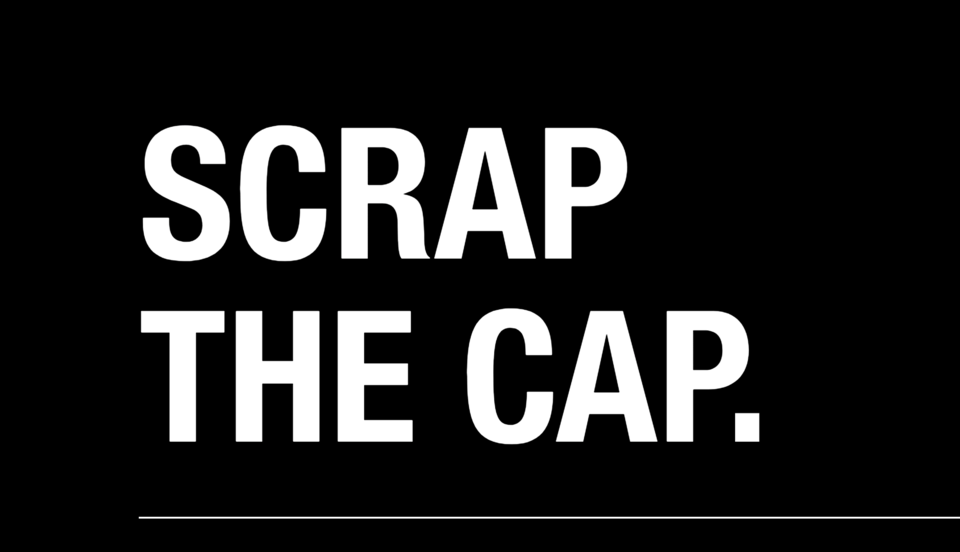LAKELAND - The Alberta government is urging Canadians to oppose an emissions cap the Canadian federal government proposed and is launching an advertising campaign to get their point across.
The “Scrap the Cap” campaign aims to defend Canada’s economy and jobs against the oil and gas emissions cap, stating, it will “hurt all Canadians.”
“Alberta is encouraging Canadians to visit the Scrap the Cap website and tell Ottawa they cannot and will not support a cap on energy production that leaves Canadians with a lower standard of living and reduced services,” according to information from the Government of Alberta.
The province’s multi-media national advertising campaign is running from Oct. 15 to the end of November.
“We’re challenging a proposed policy that would stifle our energy industry, kill jobs and ruin economies by launching a national campaign that tells Ottawa to ‘Scrap the Cap.’ We’re telling the federal government to forget this reckless and extreme idea and get behind Alberta’s leadership by investing in real solutions that cut emissions, not Canada’s prosperity,” said Premier Danielle Smith, in mid-October.
Executive Director of the Pembina Institute, Chris Severson-Baker, offered a response against the province’s stance.
The Pembina Institute is a national organization that provides industries and governments with “research, analysis and recommendations to inform policies and practices related to energy,” according to information from the organization’s website.
Severson-Baker commented on the significant growth of both emissions and profit in oil and gas, without sufficient emission reduction efforts.
“Oil and gas emissions have grown 11 per cent since 2005, more than any other economic sector in Canada. Looking at just the oilsands specifically, emissions have grown 142 per cent since 2005 – as oilsands production has continued to climb and companies have experienced back-to-back years of record-breaking profits in 2022 and 2023, with very little evidence of sufficient capital being dedicated to projects that would reduce emissions,” he added.
Premier Smith called the emissions cap “short sighted,” with the Government of Alberta stating, "If left unchanged, this cap would force Canada’s energy industry to curtail production at the expense of struggling Canadian families. When production is cut, jobs, tax revenues and the economy are cut too. It is, in effect, a cap on prosperity that would be felt across the country.”
The Government of Alberta says the province aspires to be carbon neutral by 2050 - without compromising “reliable and secure” energy or job cuts.
“Alberta is reducing emissions through common sense, incentives and technologies, not taxes or punitive regulations,” according to information from the province.
“[T]he Government of Alberta cited emissions reductions that have already been achieved in the electricity sector and from oil and gas methane, as evidence that federal regulation is not needed. Both of these have in fact been achieved as a result of regulations,” said Severson-Baker. He argued that the emissions cap ensures Canada’s oil and gas sector continues to reduce emissions and remain competitive in “a world based on low-carbon energy resources.”
The Government of Alberta stated the emissions cap would hit Alberta the hardest. “[I]n 2040, the province’s GDP would shrink by 4.5 per cent. Canada’s would decline by one per cent. The cap would result in 150,000 Canadians losing their jobs and the loss of $14 billion a year from the economy. The average Canadian family would be left with up to $419 less per month to spend on groceries, housing or fuel, impacting the quality of life Canadians enjoy coast to coast to coast.”
Severson-Baker argues that the Alberta government’s third-party studies on the impacts of the emissions cap can be misleading.
“Pembina Institute analysis has found that these studies tend to hinge on the assumption that the industry chooses to take very little meaningful action to reduce emissions, and therefore has no choice but to limit production,” said Severson-Baker.
He explained that the oil and gas sector has options available to ensure its future and continue to contribute economically, though it must involve investing in emissions reduction projects.
Rebecca Schulz, Minister of Environment and Protected Areas called the emissions cap “unconstitutional,” and stated that there is a way to reduce emissions without “killing the economy.”
“We will not stand by while the federal government threatens tens of thousands of jobs. This production cap means billions in revenues down the drain, and we will not let our province’s – or our country’s – economic future be gutted by an out-of-touch federal government,” said Schulz.



